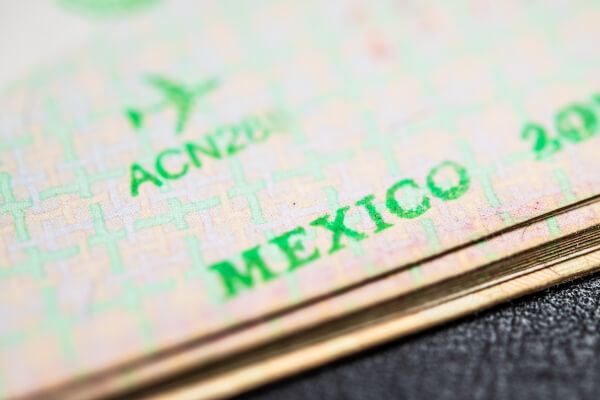Hiring Independent Contractors in Canada: A Complete Guide for Businesses
Learn how to hire independent contractors in Canada. Understand legal rules, tax responsibilities, and how to avoid misclassification with this guide.

If you’re buying or selling internationally, you’ll need to be clued-up on Incoterms®. These specific sets of International Commercial Terms (each three letters long) outline the buyer and seller responsibilities for all parts of the shipping process.
It’s all designed to make complex international shipping simpler, and to give clarity to everyone involved.
Here, we’ll look closely at Free Alongside Ship, abbreviated as Incoterms® FAS. These terms clarify buyer and seller responsibilities when shipping via sea and inland waterway transport.

International transfer costs can really cut into the profit margins of a business.
That's why 7 million users are already using Wise, the new and clever way to send and manage money internationally.
Wise lets you send money for a low transparent fee using the mid-market rate, through their own network of local bank accounts. Money never crosses borders, fees stay low and you save cash.
See if you could save with Wise
Incoterms® FAS is one of 11 rules issued by the International Chamber of Commerce (ICC)¹. These rules are designed to standardize, simplify and provide clarity to arrangements between merchants in different countries.
Of these 11 Incoterms®, 4 relate to sea and waterway transport only². Incoterms® FAS is one of them.
FAS stands for Free Alongside Ship, with the name of the loading port to be inserted afterwards. It is often used in situations where the seller of the goods has direct access to the vessel in order to load it. FAS rules will usually be used for bulk cargos or non-containerized goods.³
Like the other Incoterms®, FAS is included in sale and shipping contracts to let everyone know who is responsible for what. For example:
With the rules for the shipment agreed in advance, this minimizes the chances of one or both parties quibbling or reneging on their side of the arrangement. It should help to make complex shipping arrangements simpler and smoother.
Under Incoterms® FAS rules, the seller is responsible for clearing the goods for export and delivering them next to the vessel (this is the ‘alongside ship’ part of FAS) at the named port.
Once the goods are ready for transfer to the waiting ship, the buyer becomes responsible for loading the goods and all costs until shipment is complete. This includes contracting the carrier to ship the goods.⁴
If a shipping contract stipulates Incoterms® FAS rules, the buyer takes responsibility for all costs from the point the goods are delivered to the transport vessel by the buyer. This includes freight costs, as well as arranging export clearance and shouldering the risk of loss/damage for the duration of the delivery period.⁵
Incoterms® are updated roughly every 10 years.⁶ The latest update was in January 2020, updating the 2010 rules. This is why you won’t find FAS Incoterms® 2015, 2016, 2017 and so on. Until the update, the 2010 rules were in operation.
Yes, the older version of the Incoterms® can be used in sale and shipping contracts. However, it must be crystal clear which version of the terms you are using.⁷ It’s crucial to avoid ambiguity, so that all parties are aware of their responsibilities and the terms of the arrangement before the shipment goes ahead.
The main changes affecting all Incoterms® relate to costs and security, as well as measures to make the rules more user-friendly.
The 2020 update makes it much easier to find information about who pays for what. A comprehensive listing of all costs for each rule has been included, along with more detailed security requirements. ⁸
After reading this guide, you should now have a better idea of how the Free Alongside Shipping (FAS) Incoterms® rule works. This is essential knowledge for drafting or understanding international shipping contracts, whether you’re a buyer or a seller.
Sources:
Sources checked on 18 June 2020
*Please see terms of use and product availability for your region or visit Wise fees and pricing for the most up to date pricing and fee information.
This publication is provided for general information purposes and does not constitute legal, tax or other professional advice from Wise Payments Limited or its subsidiaries and its affiliates, and it is not intended as a substitute for obtaining advice from a financial advisor or any other professional.
We make no representations, warranties or guarantees, whether expressed or implied, that the content in the publication is accurate, complete or up to date.

Learn how to hire independent contractors in Canada. Understand legal rules, tax responsibilities, and how to avoid misclassification with this guide.

Learn how to hire independent contractors in Brazil. Understand tax rules, compliance, contracts, and how to avoid misclassification risks.

Learn how to hire and pay independent contractors in Mexico. This article also includes an FAQ and best practices about working with contractors in Mexico.

Learn how to navigate the overseas worker recruitment. Discover legal requirements, sourcing strategies, visa compliance, and tips for international hiring.

Paying overseas vendors is common, but the hidden costs of B2B cross-border payments aren’t. Learn how to simplify international business payments today.

B2B payment processing doesn’t have to be hard. Learn how growing businesses can simplify cross-border transactions, streamline invoicing and get paid faster.